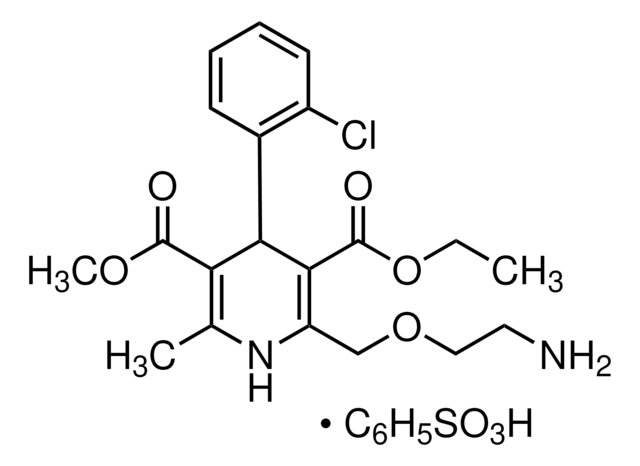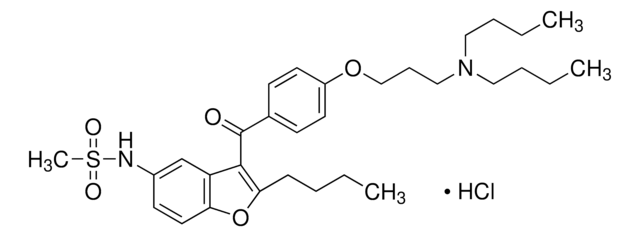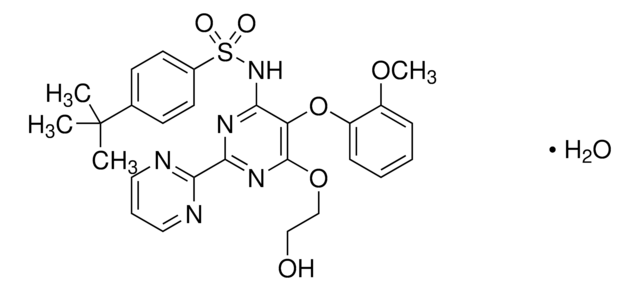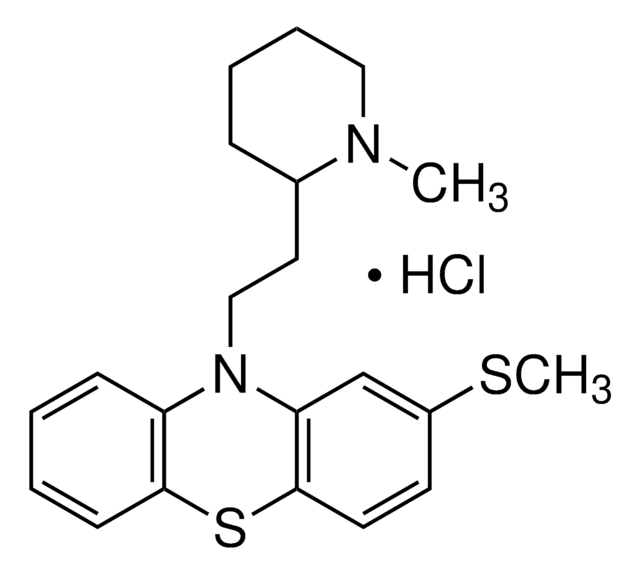A8423
Amiodarone hydrochloride
≥98% (TLC), powder, ion channel blocker
Synonym(s):
(2-Butyl-3-benzofuranyl)[4-[2-(diethylamino)ethoxy]-3,5-diiodophenyl]methanone hydrochloride, 2-Butyl-3-benzofuranyl-4-[2-(diethylamino)ethoxy]-3,5-diiodophenyl ketone hydrochloride
About This Item
Recommended Products
Product Name
Amiodarone hydrochloride, ≥98%
Quality Level
Assay
≥98%
form
powder
originator
Wyeth
storage temp.
2-8°C
SMILES string
C(=O)(C=1C=2C(OC1CCCC)=CC=CC2)C3=CC(I)=C(OCCN(CC)CC)C(I)=C3.Cl
InChI
1S/C25H29I2NO3.ClH/c1-4-7-11-22-23(18-10-8-9-12-21(18)31-22)24(29)17-15-19(26)25(20(27)16-17)30-14-13-28(5-2)6-3;/h8-10,12,15-16H,4-7,11,13-14H2,1-3H3;1H
InChI key
ITPDYQOUSLNIHG-UHFFFAOYSA-N
Looking for similar products? Visit Product Comparison Guide
Application
Biochem/physiol Actions
Features and Benefits
Substrates
Signal Word
Warning
Hazard Statements
Precautionary Statements
Hazard Classifications
Aquatic Acute 1 - Aquatic Chronic 1 - Carc. 2 - Eye Irrit. 2 - Lact. - Repr. 2 - Skin Irrit. 2 - STOT SE 3
Target Organs
Respiratory system
Storage Class Code
11 - Combustible Solids
WGK
WGK 3
Flash Point(F)
Not applicable
Flash Point(C)
Not applicable
Personal Protective Equipment
Choose from one of the most recent versions:
Certificates of Analysis (COA)
Don't see the Right Version?
If you require a particular version, you can look up a specific certificate by the Lot or Batch number.
Already Own This Product?
Find documentation for the products that you have recently purchased in the Document Library.
Customers Also Viewed
Our team of scientists has experience in all areas of research including Life Science, Material Science, Chemical Synthesis, Chromatography, Analytical and many others.
Contact Technical Service
















